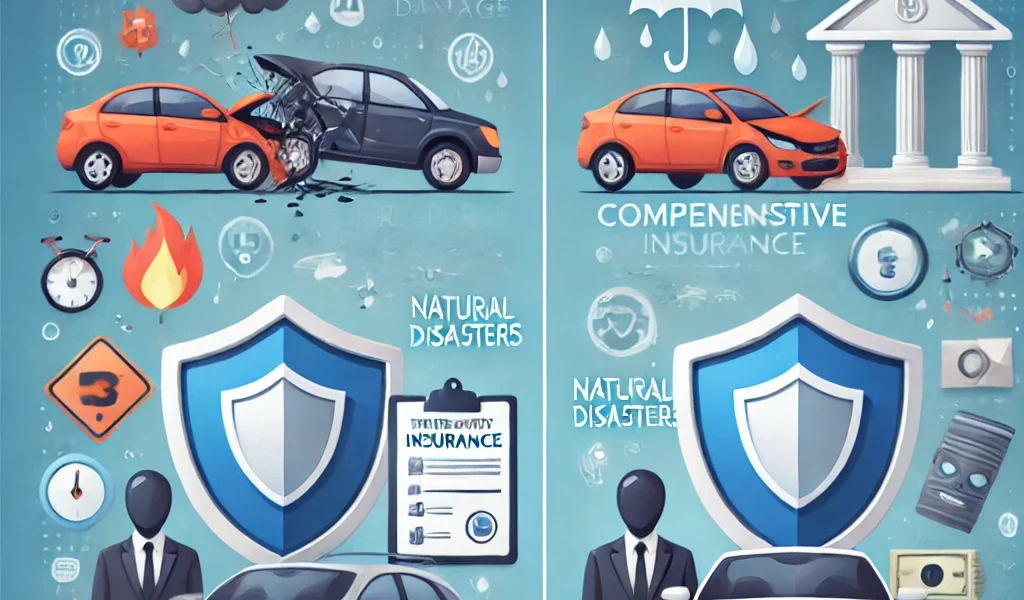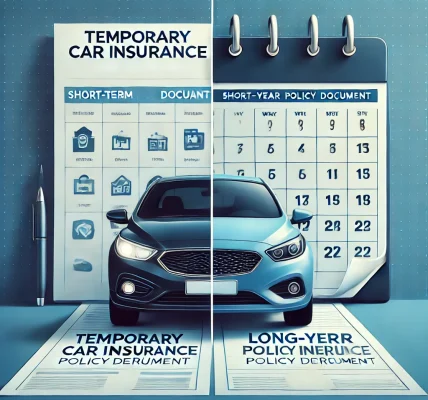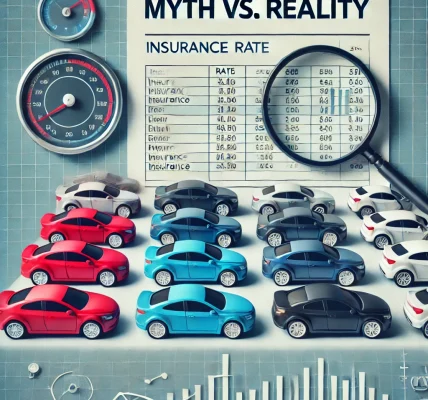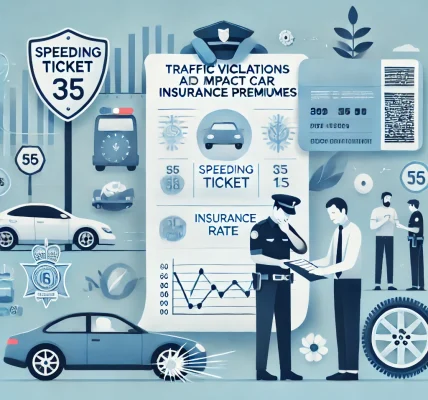Car insurance is a crucial financial safeguard that protects you from unforeseen expenses in case of accidents, damages, or third-party liabilities. However, choosing the right type of car insurance can be overwhelming. The two most common types of car insurance policies are Third-Party Insurance and Comprehensive Insurance.
Understanding the differences between these two options will help you make an informed decision based on your needs, budget, and legal requirements. In this detailed guide, we will compare third-party and comprehensive car insurance, their benefits, drawbacks, and which one is the right choice for you.
What is Third-Party Car Insurance?
Third-party car insurance is the most basic form of coverage and is legally required in most countries. It provides financial protection against damages caused to another person, their vehicle, or property due to an accident involving your car. However, it does not cover damages to your own vehicle.
Key Features of Third-Party Insurance:
- Covers injuries or damages caused to another person, vehicle, or property.
- Mandatory as per legal requirements in most countries.
- Does not cover damages to your own vehicle.
- Typically has a lower premium compared to comprehensive insurance.
Pros of Third-Party Insurance:
✔ Legally required – Ensures compliance with government regulations. ✔ Affordable – Lower premium cost compared to comprehensive insurance. ✔ Financial protection for third-party damages – Covers legal liabilities for injuries and damages caused to others.
Cons of Third-Party Insurance:
✖ No coverage for your own car’s damages – If your car is damaged in an accident, stolen, or affected by natural disasters, you won’t be compensated. ✖ Limited protection – Does not include add-ons such as roadside assistance, theft protection, or coverage for natural disasters.
What is Comprehensive Car Insurance?
Comprehensive car insurance provides broader coverage, offering financial protection for third-party damages as well as damages to your own vehicle. It also covers losses due to theft, fire, vandalism, and natural calamities.
Key Features of Comprehensive Insurance:
- Covers third-party liabilities as well as your own car’s damages.
- Protection against theft, natural disasters, vandalism, and fire.
- Optional add-ons such as zero depreciation, engine protection, and roadside assistance.
- Higher premium cost compared to third-party insurance.
Pros of Comprehensive Insurance:
✔ Covers both third-party and own car damages – More financial security. ✔ Protection from natural disasters and theft – Covers fire, floods, earthquakes, and vehicle theft. ✔ Customizable add-ons – Additional coverage options for greater protection. ✔ Peace of mind – Ensures that you are financially secure in case of unforeseen incidents.
Cons of Comprehensive Insurance:
✖ Higher premium – Costs more than third-party insurance. ✖ May not be necessary for older cars – If your car has a very low market value, the premium cost may not be justified.
Key Differences Between Third-Party and Comprehensive Insurance
| Feature | Third-Party Insurance | Comprehensive Insurance |
|---|---|---|
| Coverage | Covers third-party damages only | Covers third-party damages and own car’s damages |
| Premium Cost | Lower | Higher |
| Legal Requirement | Mandatory by law | Optional but recommended |
| Own Vehicle Damage Coverage | No | Yes |
| Protection from Theft/Natural Disasters | No | Yes |
| Add-on Options | No | Yes (Zero Depreciation, Engine Cover, etc.) |
| Best for | Budget-conscious drivers with older cars | Drivers looking for complete financial protection |
Which Insurance Should You Choose?
Choosing between third-party and comprehensive car insurance depends on several factors such as your budget, car value, driving habits, and risk factors. Here’s how you can decide:
Choose Third-Party Insurance If:
✅ You have an older car with a low resale value. ✅ You rarely drive your car, reducing the risk of damage. ✅ You are on a tight budget and need to fulfill the legal requirement for insurance. ✅ You can afford to cover your own vehicle repair costs in case of an accident.
Choose Comprehensive Insurance If:
✅ Your car is new or expensive and repair costs are high. ✅ You drive frequently, increasing the likelihood of accidents. ✅ You live in an area prone to theft, floods, or other natural disasters. ✅ You want peace of mind knowing that your vehicle is covered for all types of damages. ✅ You want additional benefits like roadside assistance, engine protection, and zero depreciation.
Frequently Asked Questions (FAQs)
1. Is third-party insurance enough for my car?
If you own an older car and can afford repair costs out-of-pocket, third-party insurance may be sufficient. However, if you want full protection, comprehensive insurance is a better option.
2. Can I upgrade from third-party to comprehensive insurance?
Yes, you can upgrade your policy when renewing your insurance. You may need to pay a higher premium, but you will receive added protection.
3. How is the premium for car insurance calculated?
The premium is based on factors such as:
- Car model and age
- Location and risk factors
- Driving history
- Type of insurance chosen
- Selected add-ons
4. What happens if I don’t renew my car insurance?
Driving without insurance is illegal in most countries and can result in fines, penalties, and legal trouble. Additionally, you won’t be financially protected in case of an accident.
5. Can I switch from comprehensive to third-party insurance?
Yes, you can switch your insurance type at the time of renewal. However, ensure that you assess your coverage needs before making the switch.
Final Thoughts
Both third-party and comprehensive car insurance serve different purposes. If you are looking for basic, legally required coverage at a lower cost, third-party insurance is a good option. However, if you want full protection, including coverage for your own car, comprehensive insurance is the better choice.
When selecting an insurance policy, always consider factors such as your budget, car age, location, and personal driving habits. Compare policies from different insurers to get the best deal and ensure that you are adequately protected on the road.
By making an informed decision, you can enjoy worry-free driving while ensuring financial security in case of any unexpected events.



